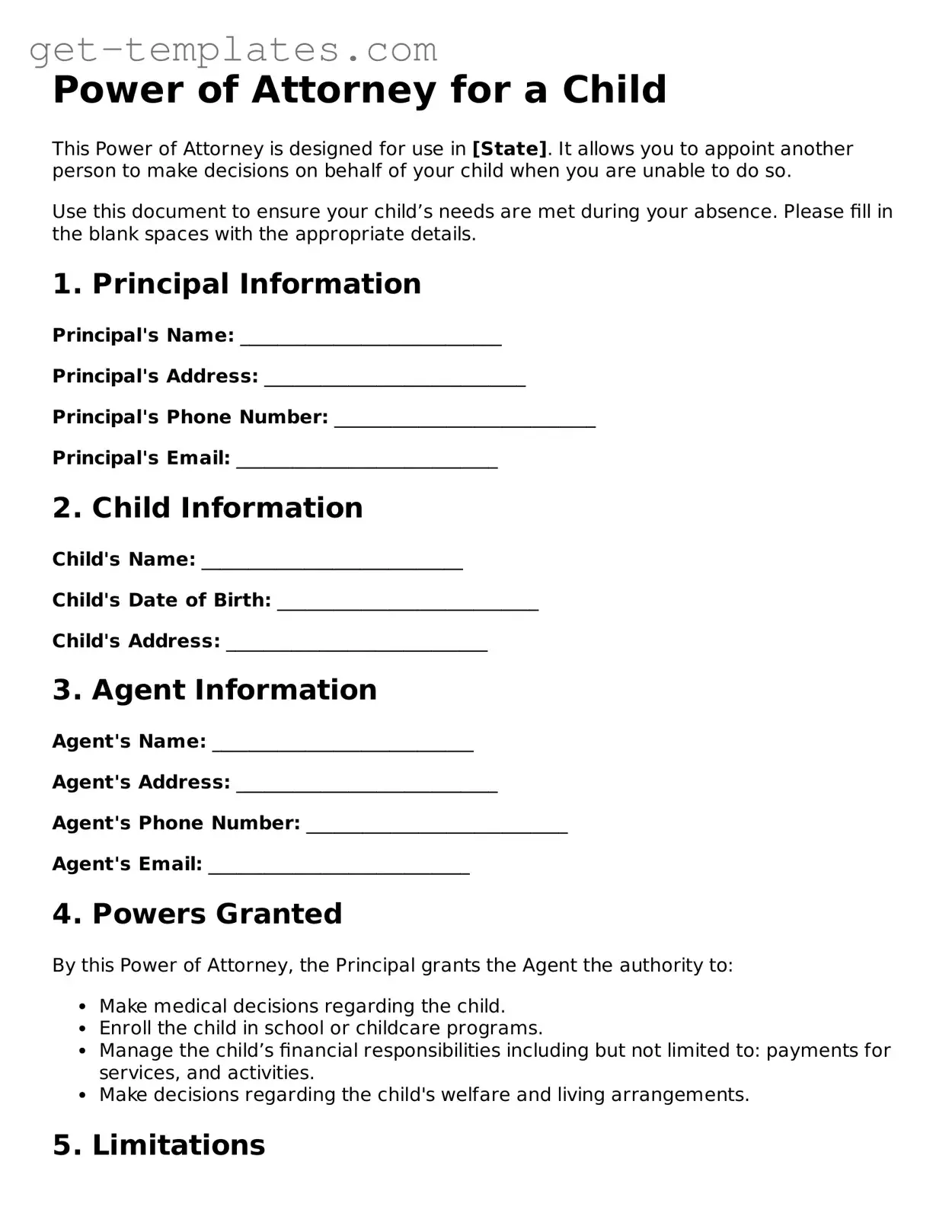Attorney-Approved Power of Attorney for a Child Form
The Power of Attorney for a Child form is a legal document that allows a parent or guardian to grant another individual the authority to make decisions on behalf of their child. This arrangement can be essential in situations where the parent is unavailable, such as during travel or medical emergencies. Understanding the implications and responsibilities associated with this form is crucial for ensuring the child's well-being and proper care.
Get Document Online

Attorney-Approved Power of Attorney for a Child Form
Get Document Online
You’re halfway through — finish the form
Finish Power of Attorney for a Child online — edit, save, download made easy.
Get Document Online
or
⇓ PDF Form
